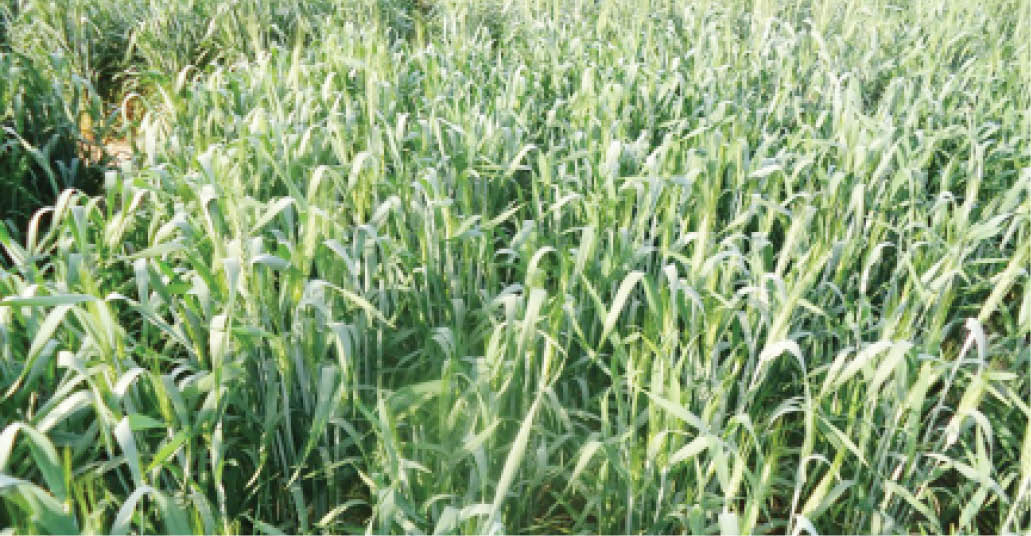NIMET rainfall prediction: Expert advises farmers on what to do
As the Nigerian Metrological Agency NIMET predicted earlier than long-term average rainfall onset dates for 2023, an Agric Expert, Prof. Mohammed Faguji Ishiyaku, has advised farmers, especially in the north, to plant early maturing seeds to mitigate the costs of early cessation of rainfall, this year. He further advised them to start looking for these […]

A wheat farm at its heading stage in Katsina State
As the Nigerian Metrological Agency NIMET predicted earlier than long-term average rainfall onset dates for 2023, an Agric Expert, Prof. Mohammed Faguji Ishiyaku, has advised farmers, especially in the north, to plant early maturing seeds to mitigate the costs of early cessation of rainfall, this year.
He further advised them to start looking for these varieties as part of measures to handle the early cessation of rainfall.
Prof. Mohammed Faguji, who is also the Executive Director, Institute of Agricultural Research, IAR Zaria disclosed this in an interaction with newsmen on NIMET weather prediction for 2023 in Zaria.
He therefore recommended late parts of May and early June as the best period for cereals planting for moist savannah parts of Nigeria.
According to him, the moist savannah part of the country lies along the southern part of Katsina, Zamfara, Kaduna states and the Federal Capital Territory.
Faguji said planting of legumes such as groundnut and soya beans should follow almost immediately after planting the cereals; stressing that cowpea planting should start around July 22.
NIMASA’s marine unit rescues 7 seafarers
Kogi Senator to Buhari: 7 days too far to address cash crunch
He, however, added that cowpea should be planted in the early parts of July in places like Kano, Jigawa and northern part of Bauchi states.
The Executive Director described the NIMET’s prediction on the normal secession of the rainfall as ‘good news’ because the rainy season would cease at the time farmers are used to.
“For example, the southern Guinea savanna, such as the southern part of Kaduna State rainfall ceases between October 5 to 10; while in the drier part of the country, rain ceases around September 30
“This development will persist during this year’s wet season farming except for Jigawa, Kano and Katsina where it was predicted that the rain will cease earlier than normal,” he said.
Faguji said the prediction from NIMET also indicated that there would be sporadic dry spells which do not follow any pattern except for Jigawa, Kano and Katsina states where the rain will completely cease.
He restated the commitment of the institute to double its efforts towards developing drought tolerant seed varieties; adding that it has already developed maize and sorghum seed varieties that will withstand the period of dry spell.
On flood, the executive director said it was predicted to occur at the same location and period (August and September) as predicted for the year 2022.
He advised that all low line places should be planted with those crops that withstand high precipitation like rice and cotton.
“And from the flood experience in the previous year, the respective state agricultural development project offices should map out the low line places and budget for appropriate crops.
“I therefore also advise for the adequate use of receding moisture from the flooded plains.”
